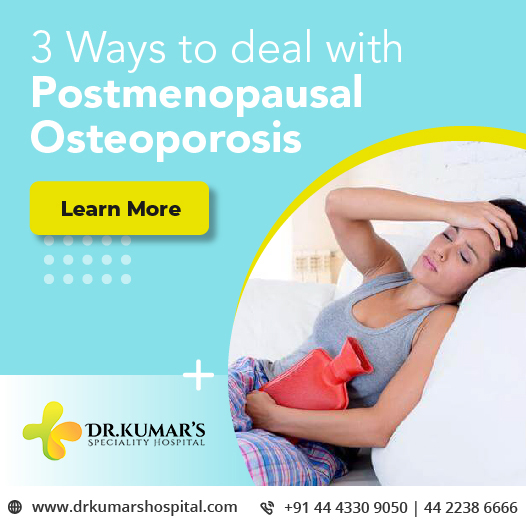
Osteoporosis is a bone disease that causes bones to become weak and brittle. In fact, the bones become so brittle that even a minor fall or a little squeezing could cause the bones to break. Healthy bones, when viewed under a microscope, resemble a honeycomb with holes and spaces. But when Osteoporosis occurs, these holes and spaces become larger which results in the bones becoming weak.
Most common symptoms of osteoporosis include:
Although Osteoporosis affects men and women, older women who are past menopause are more susceptible to Osteoporosis.This is due to the fact that bone mass decreases after the age of 35, and bone loss occurs rapidly in women post menopause.
Here are a few things you can do to deal with post-menopausal osteoporosis:
Take nutritional supplements that are rich in calcium carbonate, calcium citrate, and vitamin D. Calcium is an essential mineral that the body needs in order to maintain healthy bones. Calcium carbonate should be taken along with your meals since they require acid to dissolve. On the other hand, calcium citrate supplements can be consumed at any time. While both supplements are a good option, people who have had intestinal bypass surgery, or even people who are older than 65 years of age may benefit from Calcium citrate instead of calcium carbonate.
Vitamin D is another important supplement as it also plays a vital role in keeping your bones strong. Vitamin D helps your intestines absorb calcium from the food you consume. Getting enough of both nutrients should help increase your bone density.
2. Physical Exercise
Weight training exercise should help in maintaining current bone mass. Weight-bearing, flexibility, and balance exercise are often recommended for people with osteoporosis. Just remember to consult your doctor before starting any exercise routine since there may be a few exercises that could increase risk of fracture.
Benefits of physical exercise for osteoporosis include:
3. Avoid high-protein foods
High protein diets can actually accelerate osteoporosis. Since these foods are highly acidic, they tend to rob the bones of calcium. These acids are excreted by the kidney. But as we age, and our kidneys lose their functionality, they struggle to keep up with our appetite. This is where the bones step in and absorb the acid. This results in the bones giving up calcium, sodium, phosphorus, and everything that is needed to keep bones strong. Hence, it is always a safe option for post-menopausal women to avoid high-protein diets.
While the above methods can help you deal with postmenopausal osteoporosis, it is always a better option to consult a leading orthopedic specialist or an orthopedic speciality hospital near you to get the best treatment possible.
